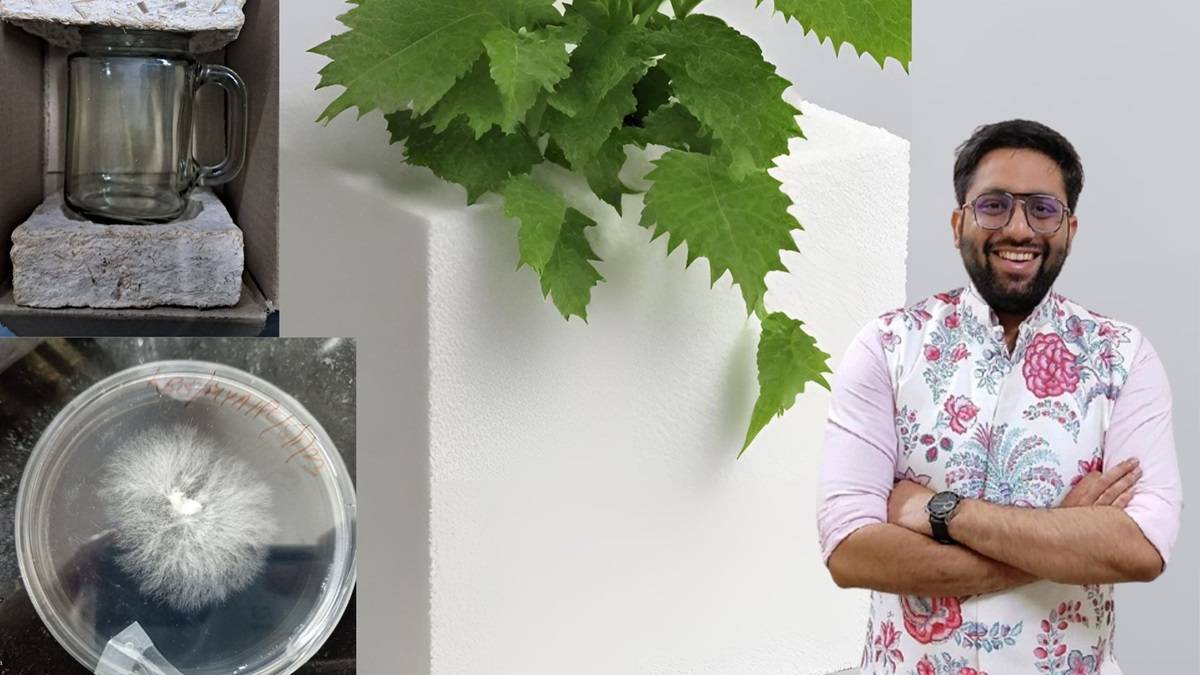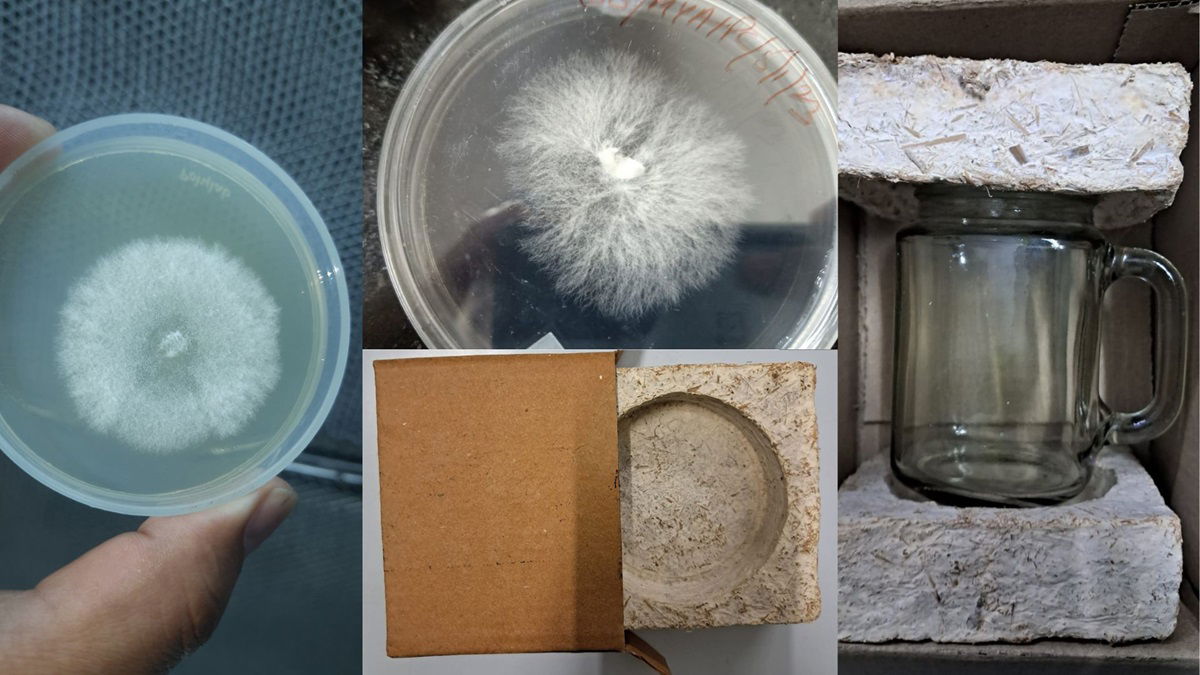
In today's world, convenience often takes precedence over environmental consciousness, making it crucial to find innovative solutions to replace harmful materials. One such trendsetter leading the way is Chaitanya Dubey from Kanpur. His journey of discovery has led to the creation of a biodegradable alternative to traditional thermocol.
Thermocol, which is also known as expanded polystyrene foam, has been widely used due to its lightweight and insulating properties. Its versatility has made it a popular choice in various industries, from packaging materials to school projects. However, despite its usefulness, thermocol's environmental impact can be significant. It is made up of non-biodegradable polystyrene, which can contribute to pollution and harm ecosystems when not disposed of properly. In response to this issue, Chaitanya started searching for a sustainable alternative that not only addresses the drawbacks of thermocol but also provides additional benefits.
Chaitanya has developed an eco-friendly solution that demonstrates his ingenuity and commitment to environmental protection. He has managed to create a material that has the same strength and durability as traditional thermocol by combining mushroom mycelium, agricultural waste, and natural fibers.
This biodegradable option serves a dual purpose: it acts as a packaging material and fertilizer. When disposed of, it breaks down naturally, releasing nutrients into the soil and promoting plant growth. Unlike traditional thermocol, this eco-friendly product is sustainable and enriches the soil, reducing the burden on our planet and promoting a greener future.
Chaitanya says, "I became intrigued by mushroom farming and its potential for creating eco-friendly materials. So, I combined my passion for sustainability with my entrepreneurial spirit which led me on a journey of exploration and innovation."

Chaitanya's path to creating bio thermocol has been defined by his dedication and determination. "I have always been attracted to independent ventures and unconventional solutions. My fascination with mushroom cultivation led me to pursue specialized training and delve deeper into the field," he says. Through hands-on experimentation, continuous research, and development, he honed his expertise and turned his vision into reality.
Eager to turn his vision into reality, Chaitanya also enrolled in a mushroom cultivation course at DMR Solan, a decision that proved instrumental in shaping his future. "The course equipped me with the knowledge and skills to pursue my entrepreneurial venture fueled by the symbiosis of mushroom cultivation and innovative applications of bio-thermocol," says Chaitanya.
Throughout his entrepreneurial journey, Chaitanya has been supported by a strong network of friends, family, and mentors. “Their belief in my vision has fueled my determination to overcome challenges and push boundaries," he shares.
Chaitanya's story is a great example of how innovation can bring positive change. It reminds us that we can all play a part in making the world a greener place. His creative approach and commitment to making a difference are paving the way for a world where we can be environmentally responsible and innovative at the same time.















